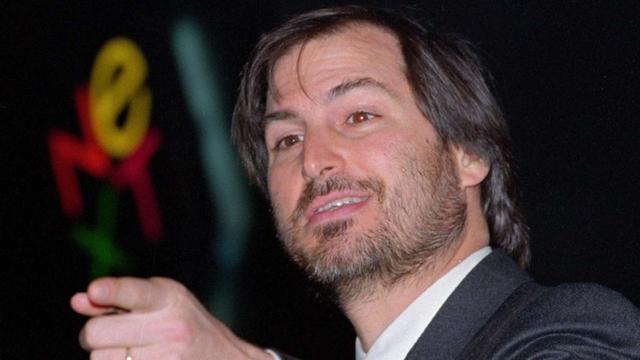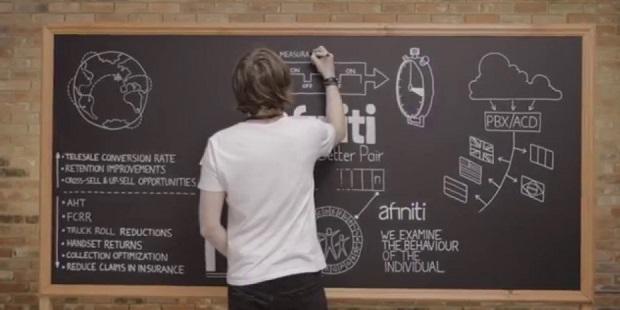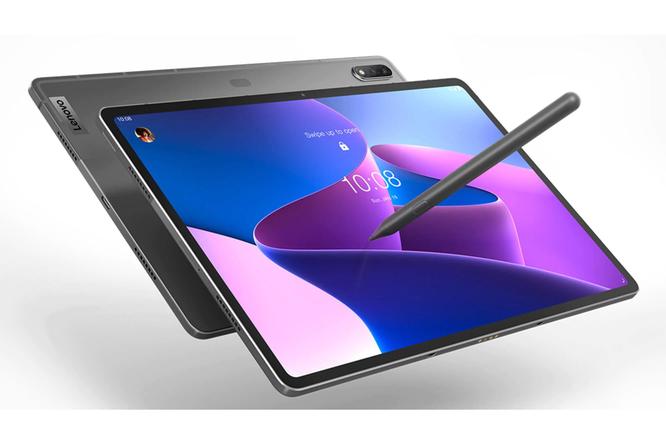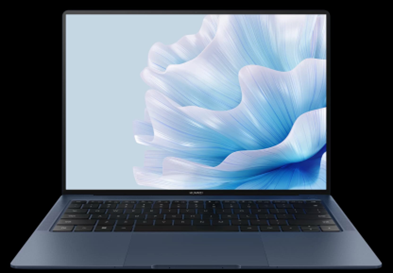The moment Jobs decided to develop iPhone ~ the birth story of iPhone (6) (Hashimoto Kanlang)-personal-Yahoo! Journalism
ITunes mobile phone failed
In 2004. It has been a year since Android was born. At Apple, on the other hand, opinions between Jobs and his cronies remain the same about whether they should be involved in the mobile phone business.
Even creating a mobile phone with the advantage of a communication carrier will not produce any innovation. There can be no Apple style works.
Although Jobs was reluctant to join, his subordinates did not give up his phone. Its annual sales have reached seven times that of computers. Because there is no doubt that the axis of the times is shifting.
The one who pays special attention to mobile phones is Tony Fadell, who is in charge of iPod development. Once a lone professional consultant, he is now a senior vice president at Apple at the age of 35.
At that time, Fadell's subordinate Hiroshi Matsui, who was Japanese, accepted the request of the young "father of iPod".
That is to send the best-selling mobile phone in Tokyo from one hand to Fadell. Fadell took apart the Japanese mobile phone one after another and discussed it repeatedly.
"sooner or later, the iPod may become a Japanese mobile phone."
This is Apple's conclusion.
In 2000, J-Phone began to write e-mails, mobile phones with cameras became a global craze, and the decline of digital cameras began.
Apple executives predict that the same thing will happen to iPod if music phones appear.
In Japan, music phones have been successful. Japan's iTunes music store is not improving at all, with sales of less than 1 / 50 of wearing songs.
What if something like Japan happens all over the world?
Last year, the cumulative sales of the iPod were only 2 million. The cumulative sales of Walkman are 34000 vehicles.
Sony Ericsson also makes music phones. It will become a Walkman phone one day. Under the name worn in Japan, mobile music distribution is also dominated by Sony. If Sony really fights back, it may be vulnerable.
But Steve said he didn't want to play with the iPod phone.
Fadell's second-best strategy is the iTunes phone, not the iPod phone. In the United States alone, the number of mobile phones contracted reached 160 million. Sales install iTunes applications on all phones.
"in that case, even if I start to choose a music phone instead of iPod, I think only iTunes will use it."
Fadell said, "3." Amazon has joined music distribution, which is no longer Apple's exclusive patent. In Asian countries, iTunes Music Store was forced to fight hard.
Fortunately for Fadell, it was at that time that the best candidate sent a love call to Apple.
Motorola, an old brand in the time-honored brand that invented the mobile phone in 1973.
The company's fashionable flip phone, the Razr V3, was the most popular ever. After all, in the three years before the launch of the iPhone, the Razr dominated the United States, selling a total of 140 million units.
Reluctantly, Jobs also agreed with Motorola's plan to launch an iTunes phone.
Motorola is very happy. In this way, the hot product after Razr is also our product.
In September 2005, Jobs unveiled the iTunes at Apple's special music event.
"Today, I'm going to introduce iTunes mobile phones."
Behind Jobs is a picture of a rugged mobile phone, the Rokr (locker). There was no usual cheer in the auditorium, but it quieted down. Unlike Razr V3, the design of Rokr is not obvious.
"Press the button on the front and you can use iTunes in the twinkling of an eye. Anytime, anywhere. "
Press the iTunes button, which is exactly the same as the Japanese I-mode button, and the small LCD on the phone stands up iTunes. The audience did not respond.
その後、モトローラやシンギュラー(現AT&T)のCEOが登壇するが、会場は凪いだままだった。
Finally, Jobs pointed to the coin pocket of his jeans and played a joke.
"I finally know what this pocket is for," he said, and the moment he took out the iPad nano from there, the meeting was boiling, as usual, applause and cheers rang out.
After the event, the reporter's words were thrown out by a Motorola CEO who bit the bitter worm.
"Xander CEO, you've been taken by iPod nano."
Motorola's CEO said
Spit out "how to know nano!" and do your best (see 4).
That month, Wired magazine jumped to the headline "is such a phone call the Future?" no wonder.
Due to the 10 keys on the phone, iPod's excellent user interface has been damaged. There are only 100 songs. IPod should be the one who stuffed all his songs into his pocket. In addition, I can't download and buy songs from my mobile phone.
"if you don't move forward, there will be no innovation."
Jobs was right about what he said.
Customer value is the driving force of innovation. With the protection of vested interests, there is no innovation in the iTunes mobile phone created with such a retrogressive posture.
"I don't want to deal with an idiot company like Motorola anymore."
At the meeting after the event, Jobs said a lot to Fadell and them.
Isaacson's biography calls this an opportunity for the iPhone project. But then came Fred Bergstein's "Apple vs." Google says it seems to be more than that.
"the real problem is that at the time of signing with Motorola, the reason for business cooperation has disappeared."
Fadell argued.
Since the release of U2 Special Edition in November 2004, iPod has been very popular.
Cumulative sales of only 2 million units reached 10 million in 2004, 42 million in 2005, 88 million in 2006, and 1 41 million in 2007, when iPhone was launched.
IPod has become a veritable "Walkman of the 21st century".
There is no need for passive defensive measures such as iTunes phones. Jobs' interest in iTunes phones quickly disappeared.
However, the reason for giving up the iTunes phone is more than that.
The metastasis of cancer was found.
Jobs didn't have time to spend his time on boring things. He's looking for something worth burning the rest of his life. And it has been found by this time.

The decision of the IPhone plan. The next revolution
"I've been sitting there in the rocking chair. I don't have the strength to walk. "
In the living room, Jobs told the writer Isaacson at home. Even if pushed away will be entangled in the sense of tiredness, people have to be aware of the impending death. Three metastases were found in the liver.
The operation to remove half of the pancreas almost robbed Jobs of energy.
"after all, it took us six months to restore energy."
In the launch of the U2 special edition, which took advantage of the global iPod craze, Jobs immediately ran to the podium to make the meeting boiling after Bono and Gee finished playing. But that was three months after the operation, and walking was a difficult time.
After the show, journalist Stephen Levy, once a close friend, went to see Jobs in the music hall.
Jobs felt the success of the iTunes revolution in the atmosphere of the event, and his eyes were full of inner moisture.
"what I saw was his figure immersed in sadness. At that time, he really bit the emotion of excitement. "
This is what Levy wrote in his book ("8"). Levy approached Jobs and said a word of consolation.
Then asked about the background music spent before the show. Johnny Cash, who died the year before, sang the Beatles'"In My Life" Carver song, which was a strong shock.
When Jobs asked if the background music was your choice, Jobs replied, "Yes." Jobs began to say what he thought in the song selection.
"that was the last recording recorded in cash."
Four months after his wife's death, Cash followed his wife because of the deterioration of diabetes. This is a song recorded within four months between death.
In that song, there is a man who has carried out what should be done, carried out the belief that he should do, and has always been himself. He was singing to his parting wife. Rarely is there such a wealth of music.
"this is how music gives power to life. For me, this is one of these songs. "
Levi listened quietly. Jobs could not tell reporters Levy that he was struggling with a terminal illness. Even Apple executives know that there is only a short period of time. Isaacson, the biographer, later said so ("9").
"when I was diagnosed with cancer, I negotiated with God. I'm sure I'll see Reid graduate from high school. "
My son graduated from high school in 2009. There are only five years left.
The activities with Bono and others became a milestone in Jobs' brief old age. Because he drove himself to the next revolution.
Historically, iTunes may just be a circulation revolution. However, the "NeXT giant" after the iTunes music store will be on a par with Edison's record invention for the music industry.
Executives have been persuading Jobs to do the same since Fadell gave up the iPod phone. One of them is Michael Bell. Bell has always been a wireless industry expert in promoting the wireless of Mac, including Airport.
"Steve, listen to me. Mobile phones are becoming the most important household appliances in history. But the operation is very complicated, and by our standards, no company can make a decent user interface. Isn't that exactly what happened before Mac or iPod came out? "
Bell kept persuading him in this way.
When it comes to mobile phones, Jobs' stubbornness relaxes several opportunities. One is the discussion between iTunes phones and Fadell. Jobs later talked about the reason for the iPhone plan at the board meeting: "it's possible to do it once and for all," but it should be based on Fadell's research on Japan.
One more thing is the debut of MVNO. Jobs is the largest private shareholder in Disney, which surpassed its founder, and was a director of the company. Because Disney acquired Pixar through a stock exchange. At Disney, it is considering using MVNO to enter the communications business. Disney phone.
If it became a communication carrier like Disney, wouldn't it be free to reinvent the mobile phone? That's what he thinks.
"Jobs has been thinking about making Apple itself a communications carrier on the eve of the launch of the iPhone."
After his death, the operator of a communications operator said (see 12). Jobs believes that what to do is an all-out battle. You bet on the company. This is for the rest of my life.
The last push on Jobs' back was his subordinate Bell's next slogan (quote 13).
"I have every reason to do it. It's the eyelid design. Choose one of the coolest designs ever built for the future iPod. Plus Apple's software. "
November 7th, 2004.
Bell clearly remembers the day when the fate mail was sent. This is 11 days after the release of U2 Special Edition, ensuring the global craze of iPod.
An hour after clicking the send button, Jobs called. The conversation lasted two hours. Finally, Jobs said:
"OK. I'm sure we should do it. "
(next)
This article will introduce the sequel (expected to be released in summer) of "the Future is Part2 brought by Steve Jobs to the world music industry (OtoBon)" (expected to be released in the summer) Yahoo! This is a rewritten article for news individuals.
Related articles:
The birth Story of iPhone, the most important bankrupt Enterprise in Silicon Valley History (2)
Premonition of the birth story of iPhone's 29-year-old Jobs ~ iPhone (1)
What happened behind the birth of the iTunes store in Sony-what Steve Jobs brought to the music industry (5)
Why didn't iTunes become the savior? what Steve Jobs brought to the world music industry (7)
Why didn't iTunes become the savior https://news.yahoo.co.jp/byline/enomotomikiro/20171128-00078669 /
Please 2Source:CTIA-The Wireless Association.
* 3 Vogelstein, "Dogfight", pp.26
4 Idem.
* 5 Isaacson "Steve Jobs", pp.570
6 https://www.apple.com/pr/products/ipodhistory/
Chapter 6 of "the Future is the Part2 brought by Music"
※8 Steven Levy "The Perfect Thing" (2006) Simon&Schuster NY ,Chapter Download pp.175
* 9 Isaacson "Steve Jobs", pp.538
Chapter 7 of "the Future is the Part2 of Music"
Reproduce the dialogue from the account. Vogelstein, "Dogfight", pp.29
Naoki Goto and Runun Morikawa wrote the True face of the Apple Empire (2013) Literature and Art Spring and Autumn, pp.128
* 13 Vogelstein, "Dogfight", pp.29
 notebook-laptop
notebook-laptop







